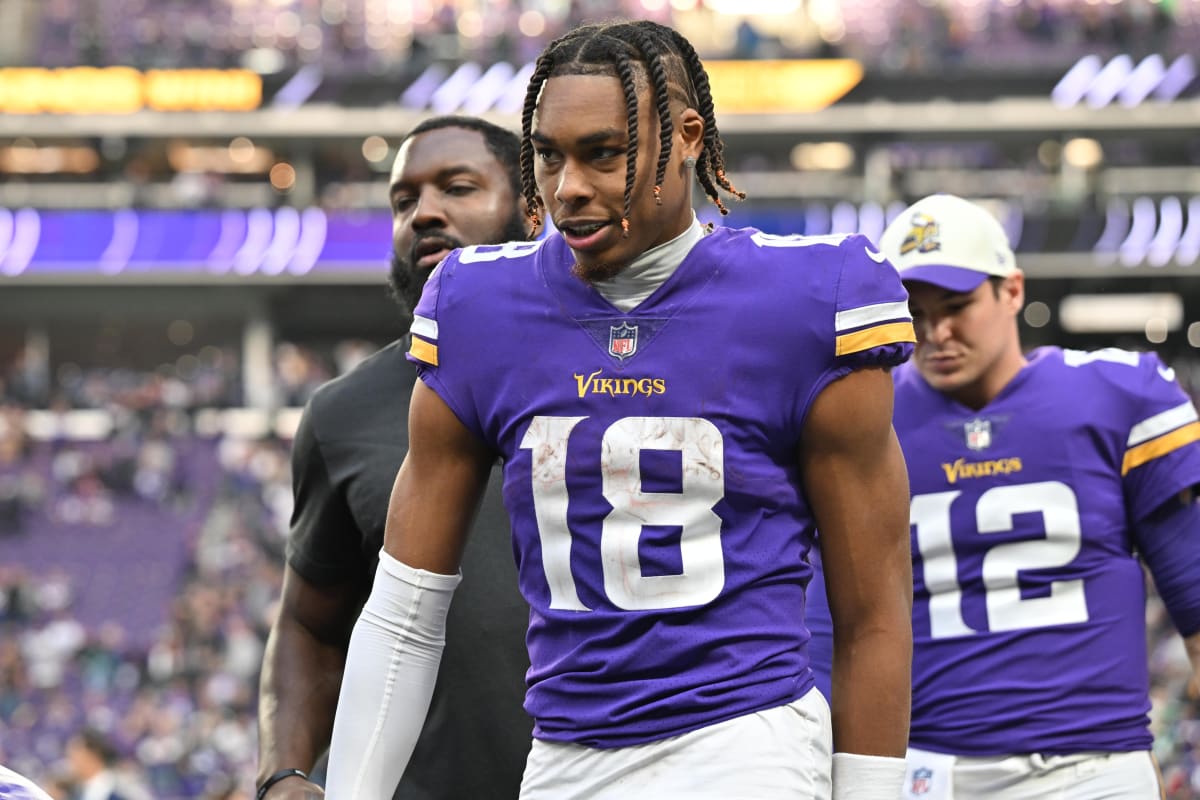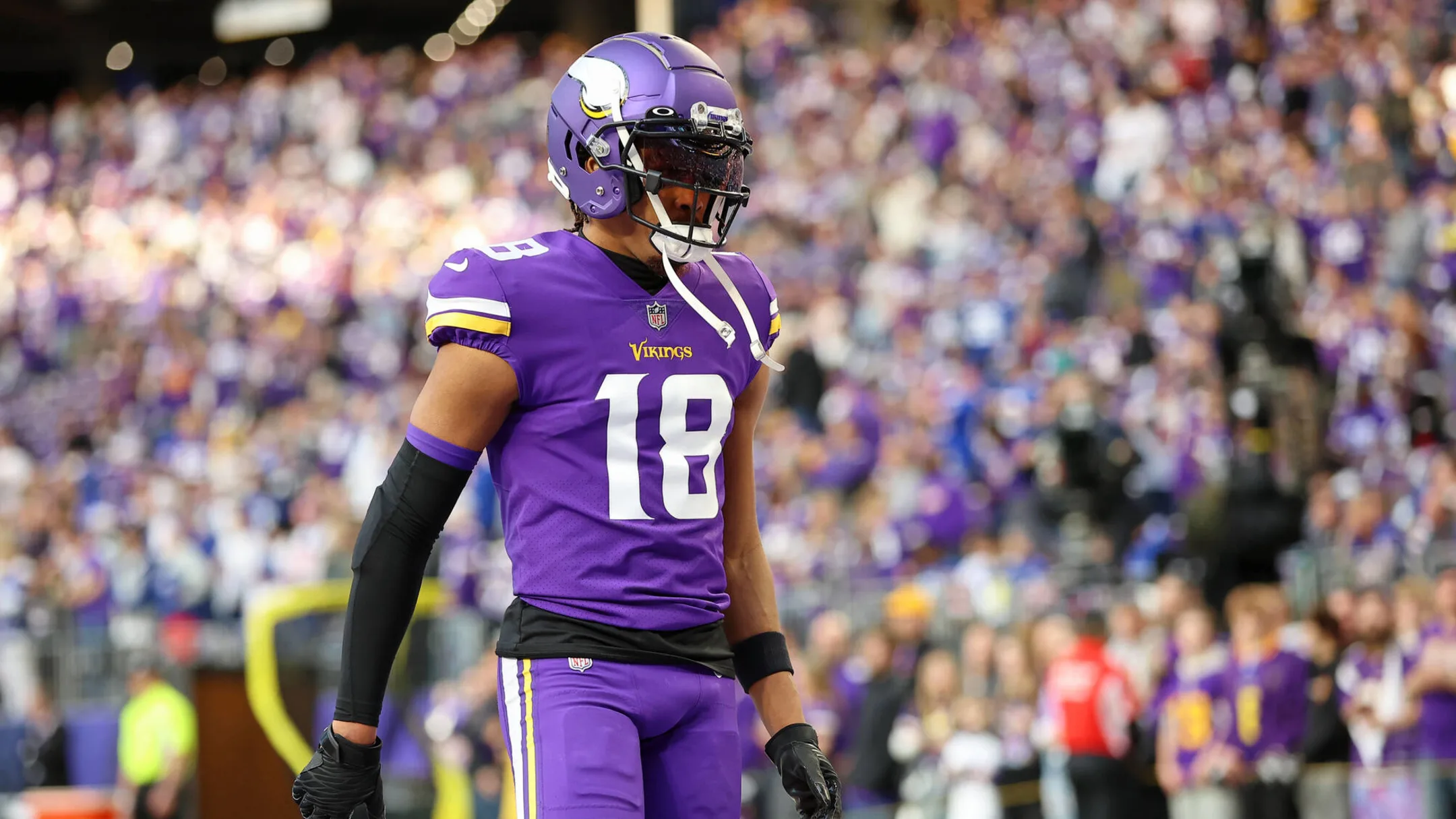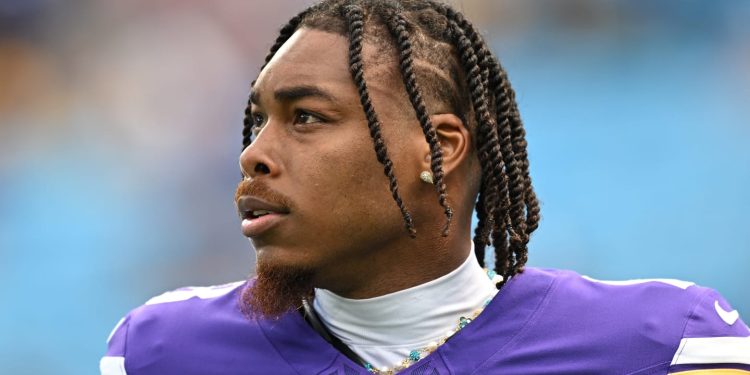As the Minnesota Vikings turn the page on the era of Kirk Cousins, Justin Jefferson, a new chapter begins with the drafting of JJ McCarthy, a promising young quarterback from Michigan, selected with the No. 10 overall pick in the 2024 NFL Draft. This pivotal move not only marks a significant shift in the team’s strategy but also paves the way for potentially transformative changes in their salary cap dynamics.
Kirk Cousins, at 35 and recuperating from a torn Achilles tendon, previously commanded a hefty salary, much more than what a rookie quarterback deal would entail. With Cousins moving on, the Vikings now find themselves with increased salary cap flexibility. This newfound financial leeway is crucial as the team focuses on securing a long-term deal with one of the NFL’s brightest stars, Justin Jefferson.

Justin Jefferson’s Path to a Historic Payday
Justin Jefferson, whose tenure with the Vikings has been nothing short of spectacular, is at the brink of setting a new financial benchmark in the NFL. ESPN’s Adam Schefter recently reported, “When this deal gets done, and I think it will eventually get done, it is expected to make Justin Jefferson the highest-paid non-quarterback in NFL history.” This statement underscores the gravity of Jefferson’s impending contract, which is poised to eclipse the current record held by Nick Bosa of the San Francisco 49ers, who inked a five-year, $170 million extension prior to the 2023 season.
The significance of Jefferson’s potential new contract cannot be overstated. It reflects not only his exceptional talent and contribution to the team but also a broader trend in the NFL where the value of elite wide receivers is skyrocketing. The market adjustment is evident as contracts for top-tier wideouts are rapidly approaching, and in some instances surpassing, those of the highest-paid defensive players, traditionally the holders of the non-quarterback salary crown.

The Economics of Excellence
Jefferson’s journey from being the No. 22 overall pick in the 2020 NFL Draft to becoming potentially the highest-paid non-quarterback in the league is a testament to his extraordinary skill set and work ethic. In just four seasons, he amassed 5,899 receiving yards, the most by any player in the same timeframe in NFL history. Despite missing seven games in 2023, Jefferson became just the third player ever to log 1,000 receiving yards in 10 or fewer games in a season.
His accolades, including a first-team All-Pro selection and the NFL Offensive Player of the Year in 2022, alongside three Pro Bowl appearances, speak volumes of his impact on the field. This impressive resume is not just a personal triumph but also a strategic asset for the Vikings, enhancing their competitive edge and fan engagement.

The Impact of Timing and Market Trends
As the NFL’s revenue and salary cap continue to rise, so does the financial recognition of players who excel at premium positions like wide receiver. The longer the Vikings wait to finalize Jefferson’s contract, the higher the price they might have to pay, especially as other young stars like CeeDee Lamb of the Dallas Cowboys and Ja’Marr Chase of the Cincinnati Bengals approach their own lucrative deals.
The Vikings’ decision to prioritize Jefferson’s extension is a clear signal of their commitment to building around core talents and adapting to the evolving economic landscape of the league. As they navigate this complex negotiation, the outcome will likely influence not only the structure of future contracts across the NFL but also the strategic decisions teams make regarding player valuations and salary cap management.
Justin Jefferson’s expected record-breaking contract is more than a mere financial transaction; it’s a milestone that reflects the changing dynamics of player worth in professional sports, heralding a new era for the Minnesota Vikings and the league at large.










